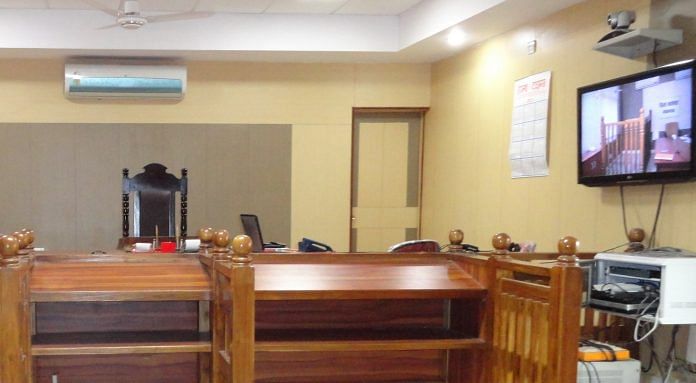With more than three crore cases pending in Indian courts, it’s apparent that the access to conclusive and timely justice is a very real problem, even as the stakeholders are working towards ways to reduce this. But the coronavirus pandemic has forced a shift towards solutions that minimise physical contact and flag the crucial role of technology in providing a flat and affordable form of access to justice. Even Chief Justice of India S.A Bobde has spoken of the opportunity for artificial intelligence to help streamline processes that are outside the ambit of decision-making. Preparedness is going to be vital.
Reform to reduce the burden on courts has been long overdue; in fact, measures had been initiated to find innovative solutions much before the coronavirus pandemic enforced a nationwide lockdown. Solutions that are forward thinking, progressive and at times disruptive were, and are even more so now, urgently required with multi-pronged, diverse stakeholder participation. Measures being taken already are quite encouraging.
Role of the private sector
When looking for disruptive solutions to expedite justice delivery outside of the courtrooms, the role of innovation and technology through the private sector will be significant. Indian startups will play a crucial role in identifying issues of physical access to courts, the unlimited potential of technology to connect stakeholders in the justice delivery system, and finding solutions that are affordable, efficient, and bridge the trust deficit of those wary of courts.
The role of artificial intelligence (AI), too, can’t be understated for non-invasive support solutions for legal and judicial practices. According to a recent report, the global legal-tech through artificial intelligence market in 2018 was valued at US $3,245 million, projected to reach a sizeable US $37,858 million by 2026, with a predicted compound annual growth rate (CAGR) of nearly 36 per cent between 2019 and 2026.
One of the key areas where Indian startups can disrupt the status quo is through technology-augmented solutions in remote dispute resolution. Online dispute resolution (ODR) has the potential to bring scale and broad-based access for corporations with a consumer interface such as banks, and over time, perhaps even in remote parts of India for resolving localised disputes. In rural areas, ODR could be a game changer by not requiring the litigants’ physical presence and doing away with the additional costs that court appearances bring with them. Affordable technology-led solutions to easier resolution is an idea whose time has come.
Also read: From virtual benches to entry curbs — how SC and Delhi HC will work after lockdown
The judiciary
The judiciary has been actively working towards solution-driven frameworks to help streamline matters, and dispose of age-old lawsuits. Technology-led solutions have been piloted and some of the initiatives are already in the second phase of implementation. The eCourts Integrated Mission Mode project, the eCourts Services application, zero pendency courts, and several other initiatives that are in pilot or full rollout stages are aiming for futuristic solutions to a very real problem.
The coronavirus pandemic has exacerbated the urgency to use technology, with the Supreme Court conducting some virtual hearings through video conference and also announcing to set up virtual courtrooms to minimise disruptions. The Supreme Court could also standardise video-conferencing, virtual reality studios, mobile app-based modules and other such technologies as they advance.
All of this will, however, require further engagement with agencies that can help strategically and practically. With the pendency set to increase due to reduced capacities necessitated by the pandemic now, and by norms set for the future, alternative options aided by technology will need to be piloted at the earliest.
Also read: How AI can be used in policing to reform criminal justice system
Efforts by the government
The Narendra Modi government is working towards decriminalising minor and petty offences, instituting a mechanism that compounds offences through monetary penalties as opposed to imprisonment. The recent amendments to the Companies Act, 2013, and the mention by finance minister Nirmala Sitharaman in the Budget 2020 speech add heft to the intent of both easing the doing of business, and enhancing the ease of justice. Converting actions that are not wilfully fraudulent or with malafide intent from criminal to compoundable will not only reduce the burden on courts, but also serve a greater public interest.
Recent laws have been progressive, such as the Consumer Protection Act, 2019, which is an illustrative example of a law that enables compounding where possible, and enabling class action suits, while retaining punishment for fraudulent activity. Progressive laws could significantly help reduce future matters heading to the courts.
Together with the ongoing repeal of several archaic or obsolete laws by the Modi government, which has already repealed 1,500 such laws, and prioritising institutional arbitration, important steps are being taken.
Also read: Corona is a wake up call for Indian courts. They aren’t equipped to function in a crisis
Further endeavours
In addition, there are other solutions for consideration, many of which are recommended by leading legal policy centres in India. One is the introduction of machine-readable formats for statutes, filing of cases, and judgments.
Also, jurisdictions across the world are increasingly and successfully incorporating AI to enhance efficient access to case law to assist judges, and assisting in labor intensive tasks such as court transcriptions albeit with human oversight. While one can’t be too careful prior to adoption, the proof of concept for AI in non-invasive and non-decision making aspects of legal and judicial work now appears to be clearly visible.
The way ahead
Systemic change is never easy, but the ease of access to equitable and conclusive justice requires a concerted effort by all those who are impacted by it, and those who can make a difference. With the intent to improve the current situation established, the availability of justice and the enhanced ease of living is will be an actionable and positive outcome.
The author is Officer on Special Duty (Law), NITI Aayog. Views are personal.



